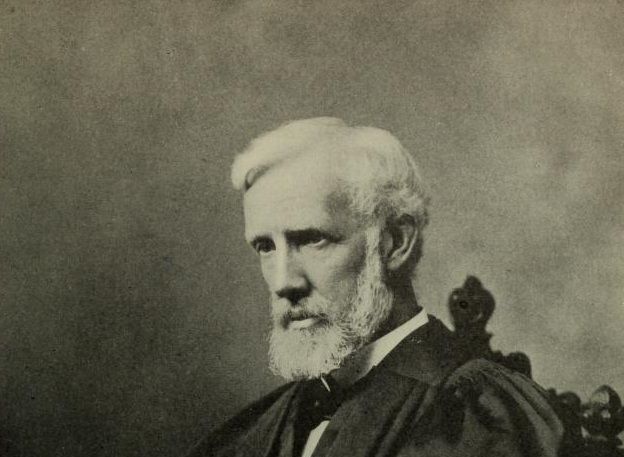Luanne Rice. PHOTOS BY COLIN BRODERICK
“Maeve Brennan” (excerpt), by Colin Broderick
No other female Irish writer in New York has garnered the mythical status of Dublin-born Maeve Brennan. It’s no surprise that in the years since her death in 1993, Maeve’s star has continued to ascend. Her life story played out like a Greek tragedy, full of artistic brilliance, unrequited love and the insanity that destroyed her.
It has been suggested that Brennan may have been the inspiration for the character “Holly Golightly” in Truman Capote’s “Breakfast at Tiffany’s.” (Brennan and Capote worked together at both the New Yorker and Harper’s Bazaar). It’s doubtful Maeve would have objected to the comparison. She was a writer acutely aware of her own public persona. Maeve Brennan made a career out of creating Maeve Brennan. It was a creation so elaborate, it’s possible that in the end she herself lost sight of what was real and what was not.
Maeve was conceived right out of the 1916 Rising, born in Dublin on Jan 6, 1917. Her Nationalist Republican parents Robert and Una Brennan, took part in the Rising. Robert was sentenced to death but the sentence was commuted to penal servitude. Maeve was born while he was in prison.
In 1934, Robert moved the family to Washington when he was appointed the Irish Free State’s first minister to the United States.
After her parents returned to Ireland in 1937, 20-year-old Maeve stayed on in New York, finding work as a fashion copywriter at Harper’s Bazaar. Then in 1949 William Shawn noticed a short piece she wrote for the New Yorker and offered her a staff writing position with the magazine.
It was at the New Yorker where Brennan found her voice writing sketches under the pseudonym “The Long Winded Lady.” The following year the New Yorker began to publish her short stories also. Friends and work associates at the New Yorker described Maeve as petite, intelligent and stylish; she wore a freshly cut flower, usually a rose, on the lapel of her perfectly tailored work jacket each day. She was also undeniably eccentric and moved from rented room to rented room like a woman hell bent on trying to outrun herself.

Larry Kirwan.
“Wine Comes in at The Mouth” (excerpt), by Luanne Rice
Starting when I was 10, my father would take me to New York late at night. He’d park our Ford station wagon in a narrow lane under the hulking West Side Highway at the tip of Manhattan. He said we were sweethearts and partners. The streets were dark, full of shadows from skyscrapers and the elevated roadway, and he locked me into the car while he went into 90 West Street.
I sat low in the seat to stay invisible. Across West Street were wharves, and the oily black Hudson River flowing into the Atlantic, and my father said a lot of the dockworkers were Irish from Ireland, and to tell them I was Irish Catholic if anyone bothered me, he said even Catholics could be rape artists, but usually not.
He was in there so long my heart wanted to explode. Was he ever coming back? Was he having affairs with the secretaries? But secretaries wouldn’t be working at night, would they? I was a tiny, jealous 10-year-old wife. At home in Connecticut, he took me on lots of service calls, but this was a pickup. We were at the United States home office for Olympia typewriters.
He sold and repaired them. They were German, he always apologized for that, having flown as a decorated navigator-bombardier in the World War II, shot down after bombing Dresden, but he said Germans made the best machinery, you couldn’t argue with fact. Many nights he stayed out drinking, he didn’t come home. He was angular and handsome, with a tortured war-torn soul, irresistible to ladies who liked unavailable husbands and fathers, so on the way down to New York I would tell him reasons he should be with our family at night, and not run around, and he would seem to agree. But he always stayed out again. I pictured him with the answering service lady. He couldn’t afford a secretary, but he had an answering service, and her voice sounded tempting and sexy. Even as a child I had an ear for seduction.

Colin Broderick.
“Alphabet City” (excerpt), by Larry Kirwan
She was the most beautiful woman I had ever seen. Long brown hair with a trace of chestnut, black eyes flashing, usually with disdain; she moved like a dancer, the space shifting before and after her, she was Puerto Rican and I never spoke to her – you didn’t unless you were introduced. That was the scene at the Kiwi, an after-hours club, on East 9th between First and Avenue A. It had its own set of rules and etiquette, and you followed them precisely, if you knew what was good for you.
Her name was Carlita – Jimmy Reece told me that – he said she was bad news, keep away from her, and I did, because Jimmy Reece knew the score on everyone in the Kiwi. He was a cool black dude who watched everything, and was accepted by everyone. I envied the casual way he spoke to Carlita, but he didn’t seem much interested in women, although he couldn’t have been a whole lot more than 50 at the time. Reece had taken me under his wing. Every now and again he’d order me to “go home, get some sleep, tomorrow is another day,” and all the other clichés that no one would tell you in a grungy after-hours.
The Kiwi floated in a separate universe: it stayed open 24 hours and was windowless, so time most definitely did its own thing within those sweat-stained, sheetrock walls. Carlita was a law unto her own too; she just seemed to materialize from out of the blue, but I swear the minute she opened the door, the smoky air changed. Everyone knew she’d entered. You could feel the pressure drop, but most everyone was too cool to acknowledge her, except for Reece, and Maria, the tall trashy, platinum-blond transvestite who tended bar.
Carlita only showed when Roman was there. He was her boyfriend, a burly, arrogant Ukrainian who occupied the far corner of the bar where the light was dimmest. Roman was married. I used to see him stroll around Tomkins Square Park with his wife and two children on Sunday afternoons. He never acknowledged me on those outings. But I had other reasons not to like Roman.
I didn’t know it then, but Jesus didn’t care much for him either. I was afraid of Jesus, a mid-level smack dealer from the projects on Avenue D. He never smiled and why should he, with a gig like his you had to have icicles coursing through your veins. He was impossibly handsome in that Latino way – olive skin, perfect features, pitch-black oily hair combed back. He always wore a suit, a pressed white shirt and a razor-thin tie. I had no idea that he too was sleeping with Carlita, until the Sunday morning that changed everything.
“The Writing Irish of New York,” edited by Colin Broderick, is published by Lavender Ink. For more information go to lavenderink.org/writingirish









